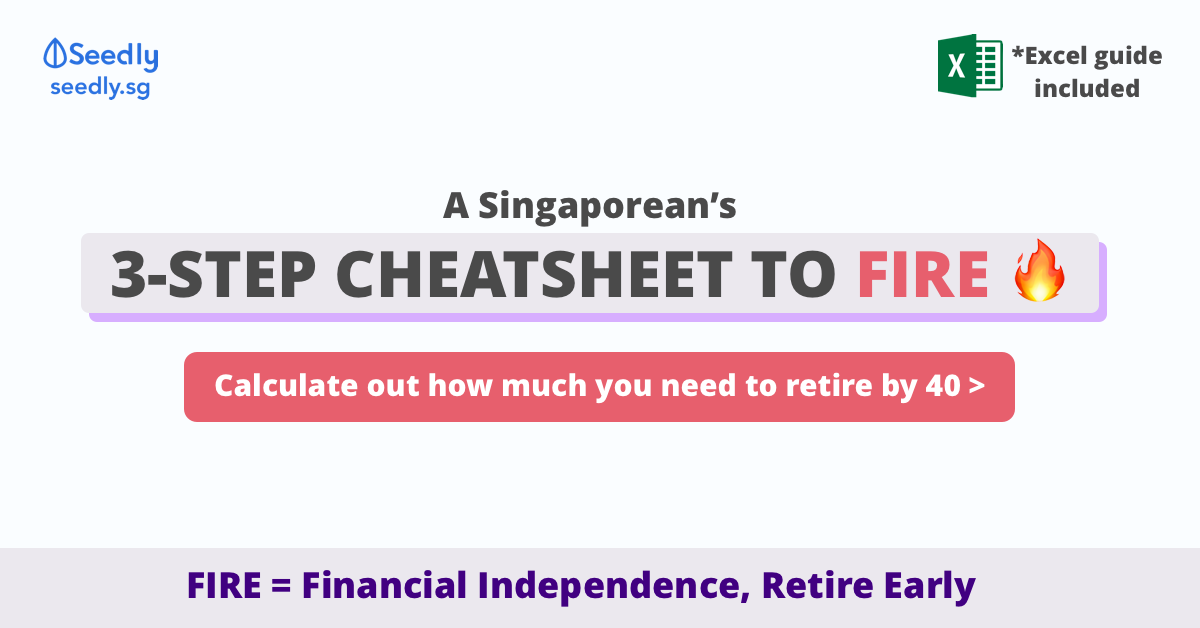Hi anon,
We'll want to look at income generating assets for this 50 year old male. This will take the form of a multi-asset portfolio which I will break down as the answer progresses.
Such assets can be seperated into two types based on the type of income they generate; guaranteed income (or as I term it, promise based) and non-guaranteed income (risk based)
We'd also want to assume the following:
Cash/FDs are generating at least 1% a year
CPF Life starts paying out from age 65, and he/she will receive $2000/mth for life guaranteed in future dollars.
One way to start is to look at that estimated $4K/mth expenditure (in today's dollars) and figure out how much of it will be core expenses (like food, bills, etc) and how much is non-core (holidays, fine dining, etc).
At a minimum, guaranteed income must cover at least the core expenses. If guaranteed income can be used to cover all expenses, that is even better.
The key risks to cater to includes:
Longevity
Health Risks
Inflation
Sequence of returns
Market volatility
When we retire, we are looking for income that is stable, inflation hedged, and with low volatility. To that end, I would recommend he create a 3-pronged retirement strategy, ensuring that
He has a systematic withdrawal plan from your assets
Proper segmentation of his assets into various buckets and layers
Have a basic retirement income floor with guaranteed income solutions for the essentials.
Of the asset classes that you have suggested, all carry significant risk, with maybe only income funds having slightly lower risk due to inherent diversification and perhaps even a bond component. While I would recommend that he have all assets to form an income portfolio, he also needs to balance out the allocation to ensure that his income has a healthy balance between guaranteed and non-guaranteed income.
A quick breakdown of the asset classes:
Stocks/REITs - Need to look for stable dividend players but take note that dividends can be reduced or suspended in a crisis; just look at our local banks
ETFs - Not known for dividends but are well diversified
Income funds - Those with bonds inside, may have lower volatility and such funds are also the only thing that can pay out monthly.
Retirement income plans - To complement CPF Life after ERS is reached, guaranteed and stable returns with upside, but returns may not match that of stocks/REITs. Having said that, it's not a fair comparison this way.
In the end, it really depends on what he expects in retirement, and I can only provide a general overview in lieu of proper retirement planning, but hopefully this can give him something to ponder over as he works out his strategy.








Hi anon,
We'll want to look at income generating assets for this 50 year old male. This will take the form of a multi-asset portfolio which I will break down as the answer progresses.
Such assets can be seperated into two types based on the type of income they generate; guaranteed income (or as I term it, promise based) and non-guaranteed income (risk based)
We'd also want to assume the following:
Cash/FDs are generating at least 1% a year
CPF Life starts paying out from age 65, and he/she will receive $2000/mth for life guaranteed in future dollars.
One way to start is to look at that estimated $4K/mth expenditure (in today's dollars) and figure out how much of it will be core expenses (like food, bills, etc) and how much is non-core (holidays, fine dining, etc).
At a minimum, guaranteed income must cover at least the core expenses. If guaranteed income can be used to cover all expenses, that is even better.
The key risks to cater to includes:
Longevity
Health Risks
Inflation
Sequence of returns
Market volatility
When we retire, we are looking for income that is stable, inflation hedged, and with low volatility. To that end, I would recommend he create a 3-pronged retirement strategy, ensuring that
He has a systematic withdrawal plan from your assets
Proper segmentation of his assets into various buckets and layers
Have a basic retirement income floor with guaranteed income solutions for the essentials.
Of the asset classes that you have suggested, all carry significant risk, with maybe only income funds having slightly lower risk due to inherent diversification and perhaps even a bond component. While I would recommend that he have all assets to form an income portfolio, he also needs to balance out the allocation to ensure that his income has a healthy balance between guaranteed and non-guaranteed income.
A quick breakdown of the asset classes:
Stocks/REITs - Need to look for stable dividend players but take note that dividends can be reduced or suspended in a crisis; just look at our local banks
ETFs - Not known for dividends but are well diversified
Income funds - Those with bonds inside, may have lower volatility and such funds are also the only thing that can pay out monthly.
Retirement income plans - To complement CPF Life after ERS is reached, guaranteed and stable returns with upside, but returns may not match that of stocks/REITs. Having said that, it's not a fair comparison this way.
In the end, it really depends on what he expects in retirement, and I can only provide a general overview in lieu of proper retirement planning, but hopefully this can give him something to ponder over as he works out his strategy.